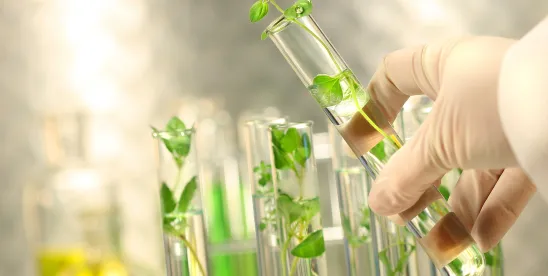On June 26, 2025, Representatives Chrissy Houlahan (D-PA) and Stephanie Bice (R-OK) announced the formation of the BIOTech Caucus. According to Houlahan’s June 26, 2025, press release, the Caucus’ mission “is to advance bipartisan policy solutions to keep the United States at the forefront of global biotechnology leadership, to engage and learn from sector leaders, and to build awareness and bioliteracy among Members of Congress.” Joining Co-Chairs Houlahan and Bice on the BIOTech Caucus are Vice-Chairs Representatives Ro Khanna (D-CA), Gus Bilirakis (R-FL), Jake Auchincloss (D-MA), and Pete Sessions (R-TX). The press release notes that the Caucus’ founding comes after the release of the National Security Commission on Emerging Biotechnology’s (NSCEB) comprehensive report to Congress in April 2025. The goals of the BIOTech Caucus are to:
- Advance, support, and champion legislation to bolster U.S. biotechnology leadership and strengthen the domestic bioeconomy;
- Convene regular meetings to strategize efforts and learn from key officials and industry leaders; and
- Hold public events in coordination with experts and stakeholders with the goal of building bioliteracy across the U.S. Capitol and calling attention to the urgency of action.
The press release states that the BIOTech Caucus’ focus areas include:
- Biosecurity: Federal investments in emerging biotechnology are critical for U.S. national security. We cannot afford to fall behind as Beijing makes strides towards controlling global bio-supply chains and enhancing Chinese military capabilities. Congress must ensure the U.S. leads the world in the development of biotechnologies with our democratic values, supports U.S. military defense applications in biotechnology, and makes advancements to keep Americans safe from bio-threats.
- Innovation: The U.S. government can play a key role in incentivizing bio-entrepreneurship and leveraging our leading capital markets. The complicated federal bureaucracy can stand in the way of progress, however. Congress must advance smart policies to elevate bio-innovation among agencies, streamline regulations, and foster a supportive business ecosystem.
- Opportunity: There is no question that domestic biomanufacturing will lead to job creation across the country. Biotechnology also stands to solve some of our greatest global challenges, like cancer, food insecurity, environmental protection, and more. Congress has a responsibility to help develop and support the bio-workforce of the future, invest across sectors, and encourage a competitive, robust, and growing domestic bioeconomy.




 />i
/>i

